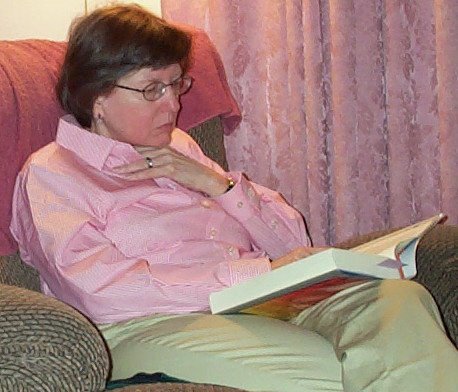Civil Rights
The following was posted on Friday 3 February 2006 but was later removed because of technical difficulties.
It rained in Greensboro on the night of April 4, 1968. I had just bought my first new car and I was driving home from the Renault dealership in Greensboro when a news bulletin came on the radio. Martin Luther King Jr had just been shot and killed in Memphis. I will not forget that night. I wept as I drove to Durham in the spring rain.
I was teaching in those days at predominantly-black North Carolina College (now North Carolina Central University.) When I got back to my apartment my phone was ringing. It was Dr Ray, the head of the English department, telling me that classes were suspended and asking me not to come to the campus for the next few days.
I mention this because I’m deeply engrossed today in memories of the civil rights movement and the career of Martin Luther King. I reported Tuesday that I have borrowed AT CANAAN’S EDGE from the library and said I was sure to finish reading it before it was due back. That isn’t going to happen. I went to the attic this morning, got PARTING THE WATERS from Box 184, and started re-reading Taylor Branch’s history from the beginning.
I admire Martin Luther King and I remember vividly those years when he was often in the news. I remember one spring night in 1963 when my dad, who felt strongly about the privilege of voting in free elections, called me into the living room. “I want you to watch this, Shirl.” There were shocking pictures on our small black and white TV screen of neatly dressed young people being attacked by German Shepherds and knocked down by powerful streams of water from hoses. It was, of course, Bull Connor and his police attacking the Negroes in Birmingham who had gone to the court house to register to vote.
Those were the years of sit-ins and marches and freedom rides, of the “Letter from a Birmingham Jail,” and the “I Have a Dream” speech. They were years of great optimism and hope and of great disappointment and frustration. And always there, his strong voice demanding justice, was Martin Luther King.
Taylor Branch brings it all vividly to life.


1 Comments:
Hi Mary.
Yes--the Taylor Branch trilogy is a thorough and incisive look at the Civil Rights era. Lots of good stuff on the issues I dealt with on Assass. Comm. in the newest volume.
Your pal, Robin
Post a Comment
Subscribe to Post Comments [Atom]
<< Home